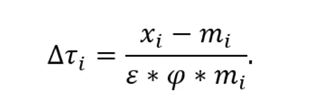On 2nd April 2025 (dubbed “Liberation Day”), President Donald Trump announced a new wave of reciprocal tariffs in an attempt to protect the US from, what he views to be, unfair trade practices by foreign nations. We explore what this will mean for financial markets, global impact, and how the world may respond to this significant shift in U.S. trade policy.
What Has Happened?
Donald Trump has revealed a list of reciprocal tariffs, the taxes imposed on imported goods, in an attempt to boost US manufacturing, protect and increase domestic job opportunities and, ultimately, “level the playing field” in, what he deems to be, “unfair” existing tariffs imposed on US exports. The announcement has already sparked debate across global markets, with traders and policymakers watching closely for the potential fallout.
British exports are being charged at the lowest rate at 10%, with the EU at 20%, China at 34%, extending all the way up to Cambodia, charged at 49%1.
The speed at which this will take place is fairly astonishing, with initial tariffs taking effect as early as Saturday and higher duty taxes scheduled for 9th April. The idea is to speed up resolution by forcing negotiations, but the key question remains: how will affected countries respond?
Reciprocal Tariff Calculations
The methodology behind the new tariffs has caused quite the controversy as a result of its somewhat straightforward nature. Ultimately, the calculation takes into account a country’s trade surplus with the US, divides it by the total value of its exports to the US and then divides that number by 2 – with a baseline tariff of 10%.

Critics have argued that this oversimplifies the complex trade dynamics and unfairly penalises countries with trade surpluses. They suggest that trade tariffs are influenced by a multitude of factors including currency valuations and domestic consumption patterns, which are left unconsidered using the above formula. As a result, extortionate tariffs have been placed on developing countries leaving countries such as the UK on the baseline tariff.
Global Response
allout from this decision is likely to be widespread and significant with many investors initially hoping that President Trump would back down and offer much more subdued global tariffs. This hope was quickly dismissed with the formal announcement.
A number of developing countries, including Vietnam, India, Thailand and Bangladesh, have been faced with some of the highest tariffs, all well over 20% - a potentially devastating hit to their economies which rely heavily on exports. The impact of these tariffs will not be felt equally with trade making up only 25% of the US economy5. As a result, the risk of increased poverty and economic stagnation in these regions is high.
Aside from the economic repercussions, diplomatic relationships have also been put into question with Australia’s Prime Minister, Anthony Albanese, stating that “this is not the act of a friend”, despite facing the lowest tariff of 10%4.
Countries within the European Union, including France and Germany, have vowed to implement countermeasures, pushing for a more aggressive tariff response. Trump has certainly riled up EU governments with claims that the 27 member states “rip [the US] off” and referring to them as “pathetic”. In response, there are ongoing discussions of a digital services tax on US companies by the end of April, relying on total agreement across all member states, as well as the potential use of the EU’s anti-coercion instrument, designed to retaliate to nations using trade as leverage6.
Meanwhile, the US has certainly not been left unscathed with S&P 500 futures falling 3% and the dollar index at a five-month low2. Moments after markets opened in the US, the Dow Jones also declined by 2.8% and the Nasdaq 100 futures were 3.3% lower3.
What Can We Expect?
Should Trump’s plan play out as intended, affected countries will consider cutting their own tariffs for the US. However, whilst this may seem like an ideal solution, the likelihood of a completely positive outcome is very slim. Many developing countries have high existing tariffs as a means to protect and develop domestic industries. Being forced to reduce these tariffs could result in a significant setback in global efforts to reduce poverty.
As an end consumer, we can also expect to see companies increasing prices as a result of higher input costs. The OECD has warned that global inflation could rise by 0.4% per year on average over the first 3 years, should the increased tariffs remain at the current level7.
The longstanding relationship between the United States and the United Kingdom has landed the UK in the lowest tariff bracket. Whilst this should result in reduced trade disruption and limited inflationary impact, there are additional implications to be considered. The UK may come under diplomatic pressure to align more closely with US trade policies and there is the increased possibility of strained relationships elsewhere as it appears the UK have received preferential treatment.
The Bottom Line
Ultimately the response to the week’s announcement remains uncertain and we are left in a waiting game. The risk of a global trade war would be economically disastrous, with the potential to undermine progress made against global poverty. Definitive responses are yet to be received from affected countries and the outcome will depend on the progress over the days and weeks ahead.
As volatility increases, brokers and institutional firms need infrastructure that can adapt quickly and perform under pressure. At iSAM Securities, our deep, multi-asset liquidity, real-time execution analytics, and global 24/5.5 support are designed to help clients navigate uncertainty with confidence.
Our Market Commentary is posted daily on our LinkedIn, providing concise insights on global markets. Follow our page to keep up to date as the situation unfolds.
Find out more about iSAM Securities solutions here.
iSAM Securities (UK) Limited, iSAM Securities (HK) Limited and iSAM Securities (Global) Limited, iSAM Securities Limited and iSAM Securities (USA) Inc. are together “iSAM Securities”.




